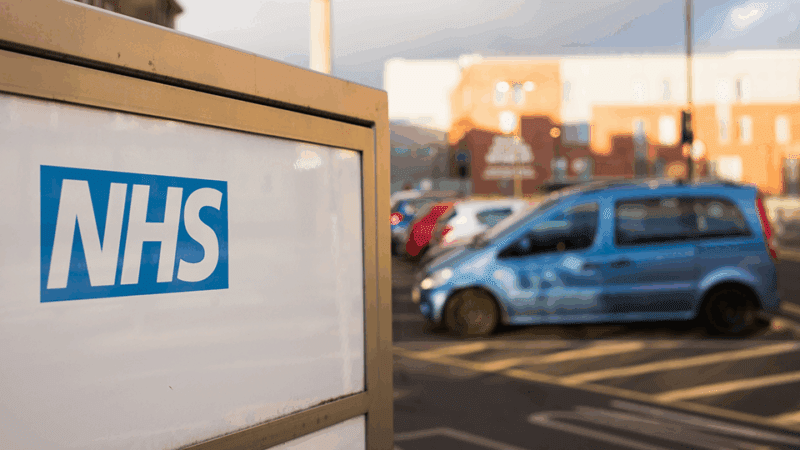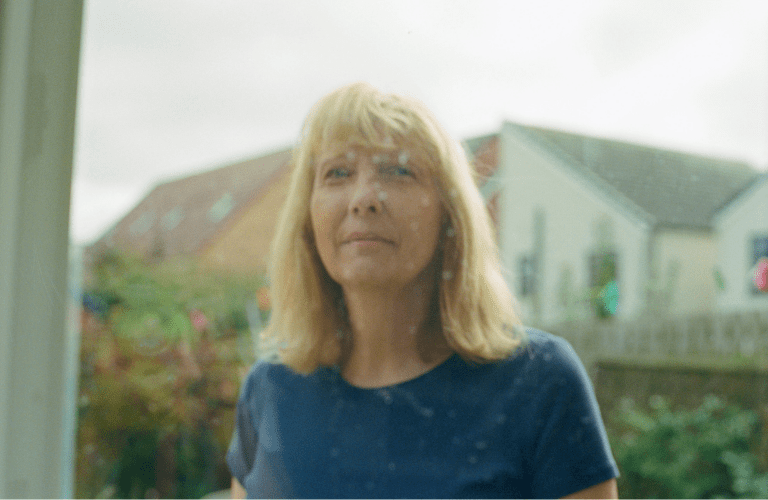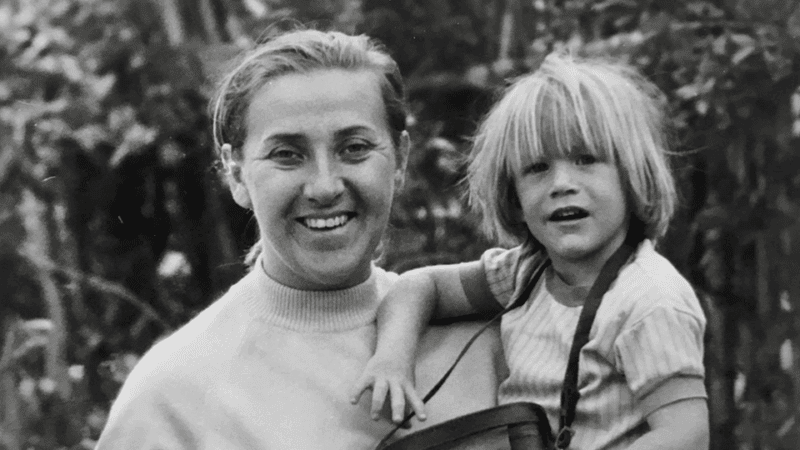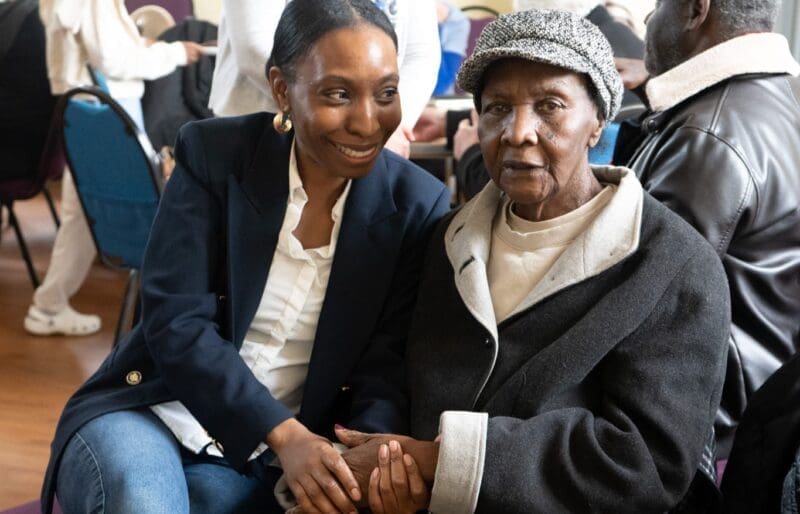By Senior Consultant Admiral Nurse at Dementia UK, Victoria Lyons.
BBC Two’s recent documentary ‘Dementia and Us’ was quite honestly one of the most human portrayals of dementia I have ever seen on television. Beautifully narrated by campaigner Dreane Williams, who lives with a diagnosis of dementia, her opening words set the tone for a programme which puts people with the condition and their loved ones at centre stage.
This documentary follows the lives of four people living with dementia and their families in a way that many of us may never have seen before. In the first instalment, we saw one year of their lives; we met Clover and her daughter; Chris and his sister and daughter; Marion and her daughter; and Gilly and his wife.

Marion. Photo credit: BBC / RDF Television / Suzie Howell
Capturing a range of family dynamics
The programme does a stellar job of capturing a range of family dynamics, age groups and subtypes; all working in unison to shatter some of the many preconceptions that people still have around dementia.
From Chris’ diagnosis of familial Alzheimer’s disease in his 30s and his loving daughter undergoing genetic testing for familial dementia, we see that this is not a condition which solely affects the elderly.
Sixty-two year old Marion’s account of her experience with Posterior Cortical Atrophy (PCA) highlights how this subtype affects her sight and language due to the brain struggling to interpret the messages being sent to it by her eyes. The juxtaposition between the letters which Marion reads out during a clinical appointment and what the audience actually sees on the screen is a potent reminder that dementia’s symptoms are not confined to memory loss.
Meanwhile Gilly and his wife are resolute in still making positive moments together after a diagnosis. The clips of them holidaying in Spain with a loving circle of friends is joyous to watch; it’s a welcome contrast to the challenges and life barriers that many people assume to exist after a diagnosis.
Just before the end of the first part of the documentary, Clover’s daughter makes the heart-breaking decision to move her mum into a care home due to the increasing demands of caring for her.
Grappling with Covid-19
This leads us to the second instalment where we continue to see some of the more harrowing aspects of dementia playing out, as the UK grapples with the Covid-19 pandemic.
All the people involved in filming for this segment spoke about loss of independence, decline in themselves as well as their loved ones, lack of stimulation and support, in addition to being cut off from family members.
As Gilly’s dementia developed, his sleeping patterns became increasingly disrupted. It showed the effect this had on his wife as she struggled to sleep for more than a few hours a night. We also saw the family meeting, showing us how dementia can invert the perspective of carers as well as people diagnosed. In a poignant moment, one of the children said that they felt like they were losing both parents due to their mum not recognising her own needs.
Diagnosis is not the end
At Dementia UK, we often hear from carers who say they really want to carry on caring, and want to do it all by themselves independently. In some cases however, accepting support when it’s most needed allows them to carry on caring for longer. This support can take many forms, including care packages and respite care – the latter of which allows Gilly’s wife to join a choir and have time to recharge her batteries.
Throughout the programme, one message came across loud and clear: that a diagnosis of dementia is not the end. For a condition still so stigmatised as dementia, that is a ground-breaking thing to achieve.
Watch ‘Dementia and Us’ on BBC iPlayer.




